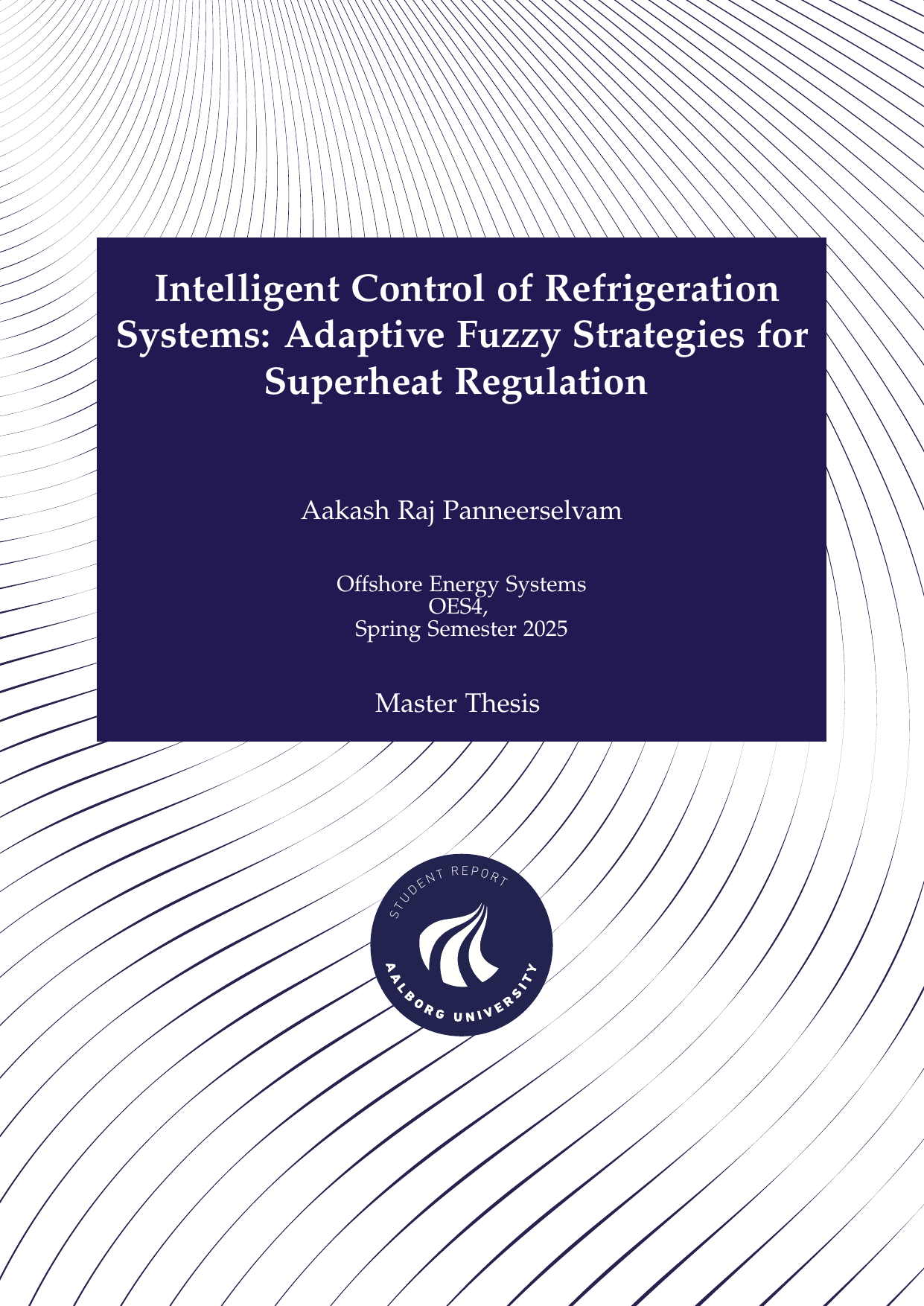
Intelligent Control of Refrigeration Systems: Adaptive Fuzzy Strategies for Superheat Regulation
Author
Term
4. semester
Education
Publication year
2025
Submitted on
2025-09-03
Pages
69
Abstract
The evaporator system is very important for refrigeration and air conditioning systems because it makes sure that heat is exchanged efficiently. But its performance is affected by nonlinear behavior, especially when the system gain is very large in some operating situations. One of the biggest problems in controlling the evaporator system is keeping the superheat levels just right. If the superheat is too low, liquid refrigerant could go into the compressor, which could break the system. Too much superheat, on the other hand, makes cooling less effective, which wastes energy. So, it’s very important to be able to control superheat levels exactly. To solve this problem, two advanced control methods are suggested: Adaptive Fuzzy-Based Sliding Mode Control This method uses a rule-based system to dynamically change control settings to keep stability and performance, even when there are nonlinearities. Adaptive Fuzzy PID Control with Adaptive Gains , this is a hybrid method that uses fuzzy logic to constantly adjust the proportional and integral gains, making sure the system works best in all situations. The goal is to create an adaptive control technique that makes the superheat at the desired temperature while successfully handling changes in gain and delays in delivery. The suggested control system must strike a compromise between efficiency and system protection by keeping superheat to a minimum and stopping liquid from getting into the compressor. Choosing the right control gains, fixing transport delay problems, and changing control rules on the fly are all important design choices that will help the evaporator system run smoothly and efficiently.
Documents
